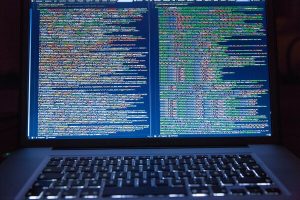 We are living in very different times today compared to just a few years ago. Malware and computer viruses have evolved over the years to become more engaging, more efficient, and more difficult to detect. Especially during the time of the COVID pandemic, malware has been tuned to target employees working from home.
We are living in very different times today compared to just a few years ago. Malware and computer viruses have evolved over the years to become more engaging, more efficient, and more difficult to detect. Especially during the time of the COVID pandemic, malware has been tuned to target employees working from home.
Here’s how you can protect your office technology as well as your data from emerging threats, such as viruses and malware.
Utilize Strong Anti-Virus Software and Firewalls
Natural Networks is a managed IT services provider, and we take security very seriously. We recommend that your office maintain strong anti-virus security measures to prevent viruses, like malware, root kits, spyware, and ransomware, from affecting your office’s computers.
Requiring your office computers to run an anti-virus security software is the first step to preventing malware and other infections from affecting your office computers and other equipment. Anti-virus software that runs in the background can help stop malicious code from running on your devices.
Anti-virus software helps protect your system in real-time by stopping threats before they become real problems. Natural Networks’ managed IT security practices maintain a solid anti-virus program that helps to maintain a strong defense against malware while offering a low runtime load in the background.
Using a firewall also helps to prevent dangerous infections from affecting your systems before they can get into your network. Firewalls help prevent unauthorized access to your business network and can alert you of potential threats and actions that were taken to prevent them. Threats that can be dealt with through a hardware firewall might include denial-of-service attacks (DoS attack), botnets, encrypted threats, malicious apps and websites as well.
With a secure and maintained firewall, many threats are eliminated without your employees or you ever realizing one had occurred!
There is no better protection from online threats, however, than educating yourself on how to avoid potentially harmful and malicious threats. Many viruses and malware can end up on your computer because they were allowed onto the machine either from an accidental click or from following a weblink in an email. Many threats can be avoided by following some helpful security tips and tricks to stay abreast on common cybercrimes and the latest attacks. If your company is not currently in an educational security awareness program with your IT provider, then sign up so that your weakest security link does not end up being you or one of your employees.
Cyber-attack Method Favorite: Email
Many malicious forms of attacks are spread today through email. It’s easy for a hacker to mimic the name of a domain or email by just tweaking the name or adding hard to see characters to the email address. They may try to fool you by telling you that you’ve won a prize and need to click “here” to get it or that your password has been hacked and you need to click a link in the email to fix it. These are all tell-tale signs of a phishing attempt to steal information or install malware onto your device.
You can avoid these threats by looking closely at the email address in the message header to verify who is sending you the email. You can also hover your mouse pointer over any links before clicking on them in order to reveal where they will take you.
Messages that try to get you to click out to the internet or that attempt to rush you into some form of action should always be closely investigated and verified. Remember that if something regarding your computer was truly urgent, you would likely be hearing about it in person rather than via an email message.
Other Methods for Protecting Yourself
Anti-Virus is just a first step when it comes to protecting your technology today. Other factors play a role in ensuring your computers, data, and other tech is protected against malicious intent.
Backups are essential in making sure that if data is ever lost, via malicious software or other means, you can quickly get your data back and your office running again. You can ensure your data is backed up by using the 3-2-1 backup rule. The rule is: keep at least three copies of your data, and store two backup copies on different storage media, with one of them located offsite.
Utilize secure passwords for all of your devices. The passwords that you use, and that your employees use, should be unique and difficult to guess. Having a computer without a password lock on it is essentially like having the front door of your house wide open without a lock.
To ensure your devices are even safer, you can also use 2FA (Two-Factor Authentication) to always ensure that logins being done either on a computer, email account, or other device or software is from someone who has the two-factor authentication key. Two-factor authentication works by sending a text to a phone before login is allowed. The user must enter the key that has been texted to them before they are allowed access.
Understanding how to avoid these tricks and having a strong anti-virus and secure network will help you and your team stay safe while working online in the future. If you’re interested in learning more about how Natural Networks can help keep your network and computers secure, give us a call today!



